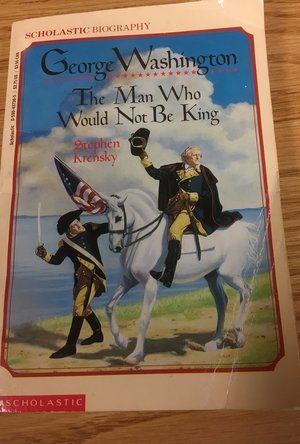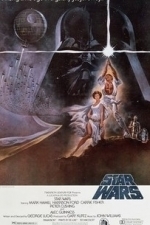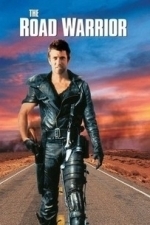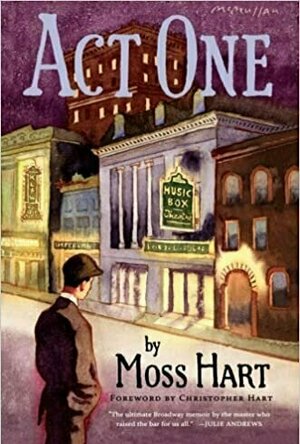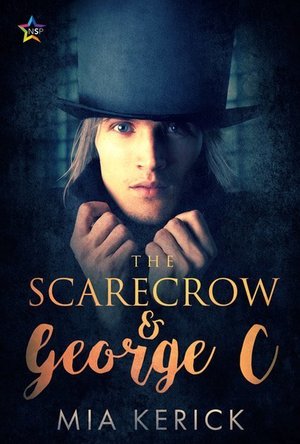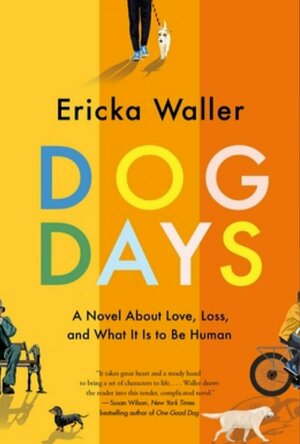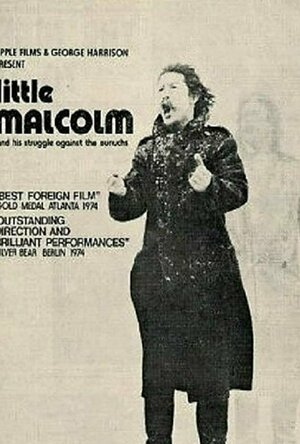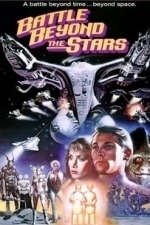Search
Search results
Abraham Ray (33 KP) rated George Washington the man who would not be king in Books
Jan 15, 2019
This is the biography of George Washington as written for children & young adults.
Rickstrong23 (216 KP) rated Star Wars: Episode IV - A New Hope (1977) in Movies
Dec 14, 2017
Rob Cohen recommended Mad Max 2: The Road Warrior (1982) in Movies (curated)
John Lithgow recommended Act One in Books (curated)
Merissa (13730 KP) rated The Scarecrow & George C in Books
Jun 17, 2019
The Scarecrow & George C by Mia Kerick
The Scarecrow & George C is the third book of Mia Kerick's I have read, and whilst I didn't enjoy it as much as The Princess of Baker Street, I still thoroughly enjoyed getting to know these characters.
Van (Donovan) is the Scarecrow in this scenario. Through childhood trauma, he is too scared of people to behave 'normally'. So he pushes everyone away, makes them afraid of him, and then feels the loss inside when they believe his facade. George C doesn't believe it though. He sees past that false veneer to the young man inside, scared, hurt, and oh so alone. Both Van and George C have a past though, which could affect their future.
With an interesting and sometimes sorrowful story, this book gripped me from the start. I wanted to see Van change, become all he could be. With George C by his side, it seemed a possibility. And with Van by his side, the world was an oyster for George C. One of the best things about this book was seeing their relationship slowly change, as their feelings did.
There were no editing or grammatical errors in this book, and the characters were excellent. With quirkiness and romance, tragic pasts and hopeful futures, this was a great read I have no hesitation in recommending.
* A copy of this book was provided to me with no requirements for a review. I voluntarily read this book, and the comments here are my honest opinion. *
Merissa
Archaeolibrarian - I Dig Good Books!
Van (Donovan) is the Scarecrow in this scenario. Through childhood trauma, he is too scared of people to behave 'normally'. So he pushes everyone away, makes them afraid of him, and then feels the loss inside when they believe his facade. George C doesn't believe it though. He sees past that false veneer to the young man inside, scared, hurt, and oh so alone. Both Van and George C have a past though, which could affect their future.
With an interesting and sometimes sorrowful story, this book gripped me from the start. I wanted to see Van change, become all he could be. With George C by his side, it seemed a possibility. And with Van by his side, the world was an oyster for George C. One of the best things about this book was seeing their relationship slowly change, as their feelings did.
There were no editing or grammatical errors in this book, and the characters were excellent. With quirkiness and romance, tragic pasts and hopeful futures, this was a great read I have no hesitation in recommending.
* A copy of this book was provided to me with no requirements for a review. I voluntarily read this book, and the comments here are my honest opinion. *
Merissa
Archaeolibrarian - I Dig Good Books!
Hideo Kojima recommended Mad Max 2: The Road Warrior (1982) in Movies (curated)
Hazel (1853 KP) rated The Moon Field in Books
Dec 17, 2018
<b>My rating: 3.5</b>
<i>I received this book for free through Goodreads First Reads.</i>
<i>The Moon Field</i> is an historical romance novel set during the First World War. It focuses mainly on two people: George and Violet, although there is a wide range of characters.
Split into three parts the novel begins with George, an 18 year old postman planning on telling Miss Violet of his feelings for her, only to find out that she is already engaged. He runs off feeling jealous and ends up enlisting for the army. At first I thought the description of George made him seem more like a child than a young adult and this annoyed me a little, however this helped to emphasise the changes he undergoes as a result of the war.
Part two is mostly set in Flanders where George is involved in the fighting resulting in deaths of certain other characters for which George blames himself despite it not really being his fault. This section ends with George being hurt himself and part three begins with him being returned to a hospital in England where he begins to recover although is now deformed. Throughout this final part George suffers with depression and thinks that he is now a freak. He has to deal with lots of rejection but, thankfully, the novel ends with a more positive outlook for his future.
Knowing in advance that romance was to be involved, it appeared at first that there might be some romantic attachment developed between George and Violet. From the very beginning I personally did not want this to happen. It did not feel right particularly as they were of different social classes, which at that time was quite important. Fortunately this did not happen and I was fairly pleased with the ending.
I think that Allnatt’s writing is extremely good and reflects the time period well. I quite often find when reading historical novels that authors use words or phrases that are too modern to have actually been said at that time. There was none of that problem with <i>The Moon Field</i>. Allnatt had also researched extremely well to get across the experiences of the soldiers on the Western Front. She mentions in her acknowledgements that she read many soldiers accounts of their experiences in the Great War. All her research defiantly paid off!
All in all it is a great historical novel.
<i>I received this book for free through Goodreads First Reads.</i>
<i>The Moon Field</i> is an historical romance novel set during the First World War. It focuses mainly on two people: George and Violet, although there is a wide range of characters.
Split into three parts the novel begins with George, an 18 year old postman planning on telling Miss Violet of his feelings for her, only to find out that she is already engaged. He runs off feeling jealous and ends up enlisting for the army. At first I thought the description of George made him seem more like a child than a young adult and this annoyed me a little, however this helped to emphasise the changes he undergoes as a result of the war.
Part two is mostly set in Flanders where George is involved in the fighting resulting in deaths of certain other characters for which George blames himself despite it not really being his fault. This section ends with George being hurt himself and part three begins with him being returned to a hospital in England where he begins to recover although is now deformed. Throughout this final part George suffers with depression and thinks that he is now a freak. He has to deal with lots of rejection but, thankfully, the novel ends with a more positive outlook for his future.
Knowing in advance that romance was to be involved, it appeared at first that there might be some romantic attachment developed between George and Violet. From the very beginning I personally did not want this to happen. It did not feel right particularly as they were of different social classes, which at that time was quite important. Fortunately this did not happen and I was fairly pleased with the ending.
I think that Allnatt’s writing is extremely good and reflects the time period well. I quite often find when reading historical novels that authors use words or phrases that are too modern to have actually been said at that time. There was none of that problem with <i>The Moon Field</i>. Allnatt had also researched extremely well to get across the experiences of the soldiers on the Western Front. She mentions in her acknowledgements that she read many soldiers accounts of their experiences in the Great War. All her research defiantly paid off!
All in all it is a great historical novel.
Dog Days is a moving, and at times very funny, book about three people: George, Dan and Lizzie. It is NOT a book about dogs - which is what I thought it would be about to some extent - but the main characters do all have dogs. And they are dogs with a purpose. All three of the main characters are going through difficult times in their lives, and their dogs are the ones who give them love, support and a reason to keep going.
George, Dan and Lizzie are all vulnerable characters: whilst Dan and Lizzie seem to suffer in silence, George is happy to let the world know how angry he is. The comedy element of the novel comes from George, but you can see the grief of the sudden loss of his wife behind his bluster and foul language.
Dan is a counsellor with OCD, which he keeps largely hidden. The only person he seems to socialise with is his cousin, Luke, who he goes running and dog walking with. And that’s his life: work, Luke, Fitz (his dog). Dan has a secret, and I think to begin with, it’s a secret even from himself.
Lizzie is another complex character. There’s a lot going on with her: she’s in a women’s refuge with her young son and won’t talk about what happened to her. She seems to be punishing herself about a mistake she believes she has made. And it’s a bit of an “Oh wow!!” moment when that reveal comes along.
This book had me laughing out loud and having a bit of a weep in equal measure. It’s an emotional book. I really, really enjoyed it, and would definitely recommend it.
Many thanks to The Pigeonhole for serialising this.
George, Dan and Lizzie are all vulnerable characters: whilst Dan and Lizzie seem to suffer in silence, George is happy to let the world know how angry he is. The comedy element of the novel comes from George, but you can see the grief of the sudden loss of his wife behind his bluster and foul language.
Dan is a counsellor with OCD, which he keeps largely hidden. The only person he seems to socialise with is his cousin, Luke, who he goes running and dog walking with. And that’s his life: work, Luke, Fitz (his dog). Dan has a secret, and I think to begin with, it’s a secret even from himself.
Lizzie is another complex character. There’s a lot going on with her: she’s in a women’s refuge with her young son and won’t talk about what happened to her. She seems to be punishing herself about a mistake she believes she has made. And it’s a bit of an “Oh wow!!” moment when that reveal comes along.
This book had me laughing out loud and having a bit of a weep in equal measure. It’s an emotional book. I really, really enjoyed it, and would definitely recommend it.
Many thanks to The Pigeonhole for serialising this.
Owen Kline recommended Little Malcolm (1974) in Movies (curated)
Awix (3310 KP) rated Battle Beyond the Stars (1980) in Movies
Feb 13, 2018
Superior first-wave Star Wars cash-in from Roger Corman, recycling the plot of The Magnificent Seven (et al); writer John Sayles shows he knows his stuff by including all the requisite space battles and funny aliens, but also references to Kurosawa, whose films originally inspired George Lucas.
Peaceful alien yokels known as the Akira (told you so) are menaced by galactic despot on a tight timetable; farm boy is dispatched to recruit space mercenaries to help fend him off when he comes back. Ropy model-work courtesy of a young James Cameron is the film's biggest weakness (the best special effect is probably Sybil Danning's costume); rousing score from a young James Horner is a major plus. Robert Vaughn's performance here is just as good as the one in The Magnificent One - makes sense, as it's essentially the same one. Film has a lovely adventurous tone about it, isn't afraid to treat the audience with intelligence; much better than many other more prestigious sci-fi films of this period.
Peaceful alien yokels known as the Akira (told you so) are menaced by galactic despot on a tight timetable; farm boy is dispatched to recruit space mercenaries to help fend him off when he comes back. Ropy model-work courtesy of a young James Cameron is the film's biggest weakness (the best special effect is probably Sybil Danning's costume); rousing score from a young James Horner is a major plus. Robert Vaughn's performance here is just as good as the one in The Magnificent One - makes sense, as it's essentially the same one. Film has a lovely adventurous tone about it, isn't afraid to treat the audience with intelligence; much better than many other more prestigious sci-fi films of this period.
